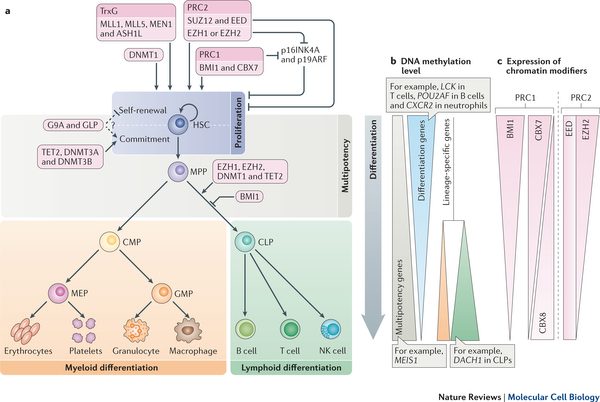
Logout
If you want to log out click in LogOut


Epigenetic corresponds to the modifications of gene expression which do not arise from modifications of the DNA sequence. The most important events are : DNA methylation at CpG islets and post-translational modification of histones (1).
In normal cells, these modifications allow to modulate gene expression and numerous factors are involved in these mechanisms (DNA methyltransferase, histone deacetylase and histone acetyltransferase, sirtuin, aurora kinase,...) (2,3). All these factors interact together to modulate gene expression, which notably lead to cell differenciation of totipotent cell (3).
In cancer, tumor cells modulate epigenetic factors to their advantage. These mechanisms lead to transcription activation of genes involved in signaling pathways, ordinary inactive (migration, invasion, cell proliferation, ...) (5).

Epigenetic control of adult stem cell function(4)
These activations are due to global DNA hypomethylation with a localised hypermethylation (tumor suppressor genes and cell cycle checkpoints). Histones are also modified in order to let the chromatin more accessible (5).
Epigenetic events are strongly involved in the cell carcinogenesis and cell invasion in new tissues by metastasis process.
AnyGenes® offers you the possibility to perform a high-throughput analysis of epigenetic regulation pathway in order to understand and identify involved signaling pathways in only one transcriptomic analysis !